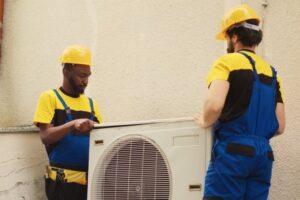In both homes and businesses, we depend heavily on the smooth operation of various systems — from HVAC units and plumbing to technology networks and appliances. Yet, no matter how advanced or well-designed a system may be, failure is always a possibility. The real question is: how can you stay ahead of breakdowns before they disrupt your comfort, productivity, or safety?
Understanding the causes of system failures and developing a proactive maintenance plan is crucial for minimizing downtime and costly repairs.

Table of Contents
Why Systems Fail
Every system, no matter how well built, has a lifecycle. Over time, wear and tear take their toll. Components age, connections weaken, and external factors such as temperature changes or moisture can accelerate deterioration. Some common reasons for system failures include:
- Lack of regular maintenance
- Ignoring warning signs like strange noises, slow performance, or rising energy bills
- Overloading systems beyond their intended capacity
- Poor quality installation or previous repairs
- Environmental factors like extreme weather, dirt, and humidity
Knowing these causes can help you take preventive action long before a full breakdown occurs.
The Importance of Proactive Maintenance
The best way to stay ahead of system failures is to embrace regular, proactive maintenance. Waiting until something breaks is often far more expensive — not just in repair costs but also in lost time, energy inefficiency, and sometimes even damage to surrounding property.
For example, regular servicing of your air conditioning system can prevent major issues before summer temperatures soar. If you suddenly find your home unbearably hot during a heatwave, you’ll wish you had scheduled that seasonal checkup months earlier! Having access to reliable HVAC repair services can make all the difference between a minor fix and a major emergency.
Routine maintenance usually includes cleaning, checking for worn parts, recalibrating equipment, and testing performance. These small, scheduled interventions extend the life of your systems and keep them running at peak efficiency.
Spotting Early Warning Signs
Part of staying ahead of breakdowns is learning to recognize early warning signs. Systems often give subtle (or not-so-subtle) clues that something is wrong. Some signs to watch out for include:
- Unusual noises like banging, whirring, or buzzing
- Decreased performance or slower processing
- Higher energy bills without an obvious cause
- Leaks, odors, or visible corrosion
- Intermittent operation or unexplained shutdowns
If you notice any of these symptoms, don’t ignore them. Addressing small problems early can prevent major disasters down the line.
Building a System Failure Plan
Despite our best efforts, sometimes failures are unavoidable. Having a system failure plan in place ensures that when things go wrong, you’re prepared to act quickly and minimize disruption.
Your plan should include:
- A list of emergency contacts for reliable repair services
- Backup equipment or alternate solutions if possible
- A documented maintenance schedule
- Staff or family members trained on basic troubleshooting procedures
- Clear instructions for shutting down systems safely if needed
In commercial environments, it’s also helpful to run periodic drills or reviews to ensure everyone knows their role if a system goes offline.
Staying Ahead for Long-Term Success
Ultimately, staying ahead of system breakdowns requires a mix of awareness, proactive maintenance, and preparation. Regular inspections, early repairs, and choosing high-quality service providers are investments in your comfort and peace of mind.
Systems will fail — it’s inevitable. But how you respond and prepare for those failures makes all the difference. By taking a strategic approach, you can greatly reduce downtime, stress, and unexpected costs. After all, the goal isn’t just to fix things when they break — it’s to keep everything running so smoothly that you almost forget the systems are there.




